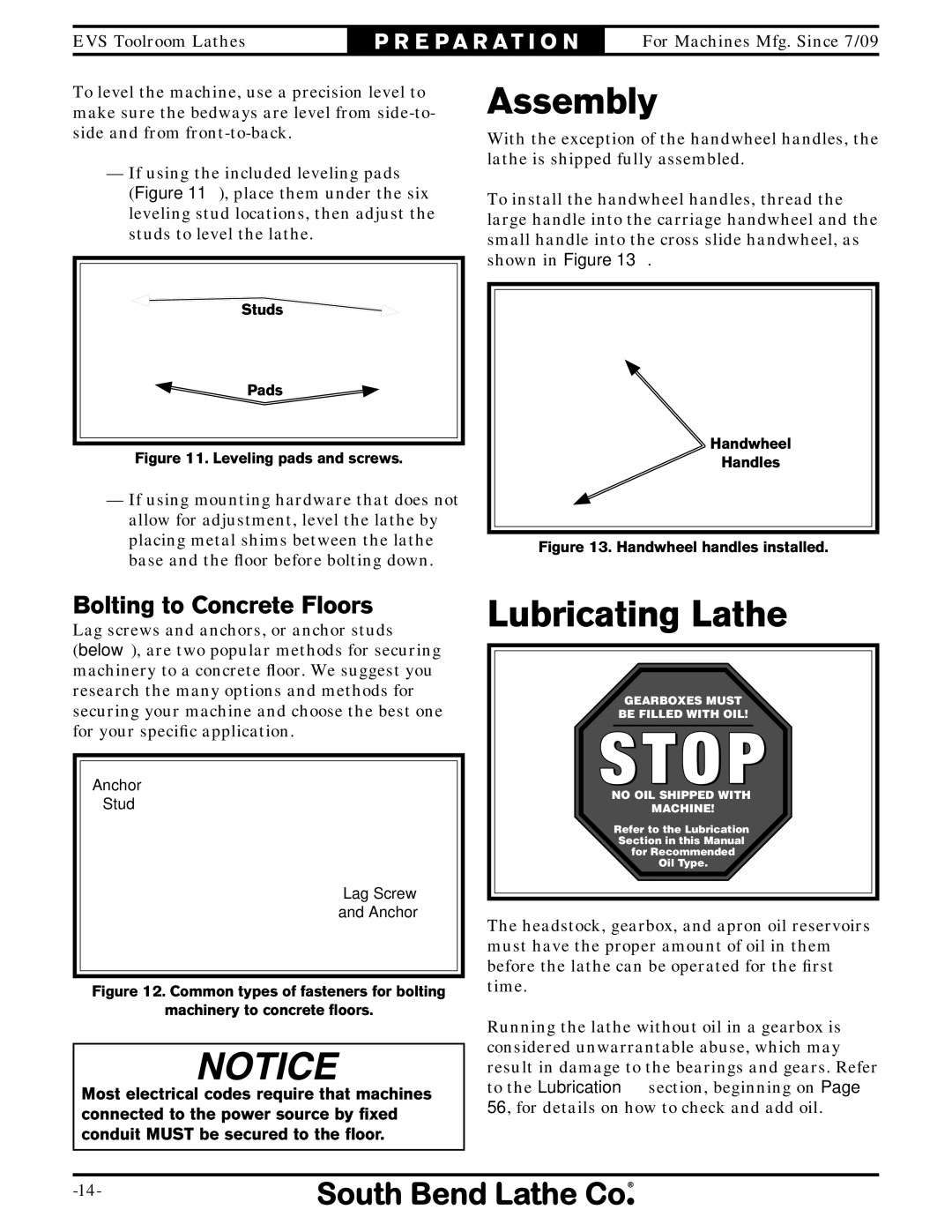
EVS Toolroom Lathes | P R E P A R A T I O N | For Machines Mfg. Since 7/09 |
To level the machine, use a precision level to make sure the bedways are level from
—If using the included leveling pads
(Figure 11), place them under the six leveling stud locations, then adjust the studs to level the lathe.
Studs
Pads
Figure 11. Leveling pads and screws.
—If using mounting hardware that does not allow for adjustment, level the lathe by placing metal shims between the lathe base and the floor before bolting down.
Assembly
With the exception of the handwheel handles, the lathe is shipped fully assembled.
To install the handwheel handles, thread the large handle into the carriage handwheel and the small handle into the cross slide handwheel, as shown in Figure 13.
H![]()
![]() andwheel
andwheel
H![]()
![]() andles
andles
Figure 13. Handwheel handles installed.
Bolting to Concrete Floors
Lag screws and anchors, or anchor studs
(below), are two popular methods for securing machinery to a concrete floor. We suggest you research the many options and methods for securing your machine and choose the best one for your specific application.
Anchor
Stud
Lag Screw
and Anchor
Figure 12. Common types of fasteners for bolting
machinery to concrete floors.
Most electrical codes require that machines connected to the power source by fixed conduit MUST be secured to the floor.
Lubricating Lathe
GEARBOXES MUST
BE FILLED WITH OIL!
NO OIL SHIPPED WITH
MACHINE!
Refer to the Lubrication Section in this Manual for Recommended
Oil Type.
The headstock, gearbox, and apron oil reservoirs must have the proper amount of oil in them before the lathe can be operated for the first time.
Running the lathe without oil in a gearbox is considered unwarrantable abuse, which may result in damage to the bearings and gears. Refer to the Lubrication section, beginning on Page 56, for details on how to check and add oil.
